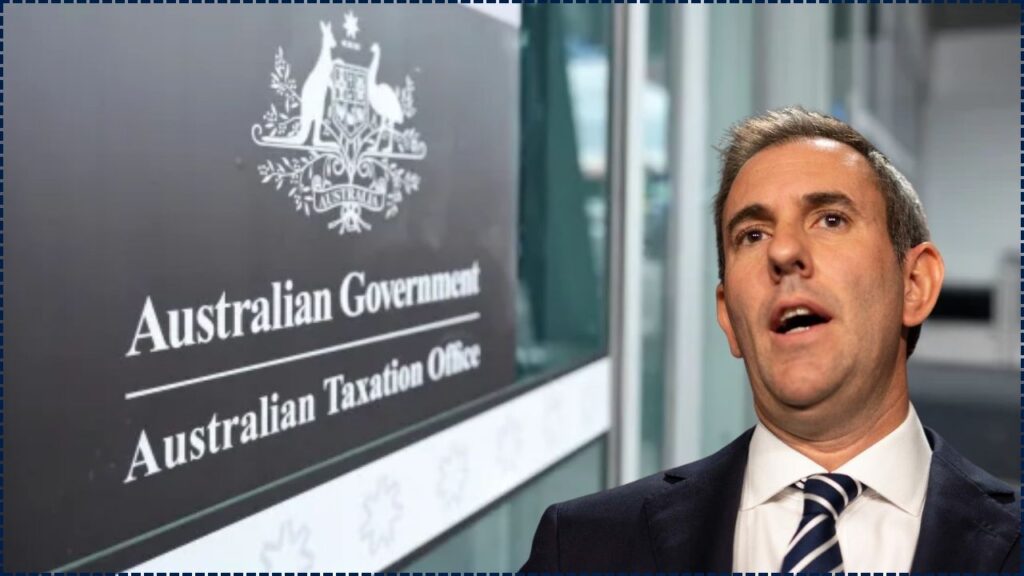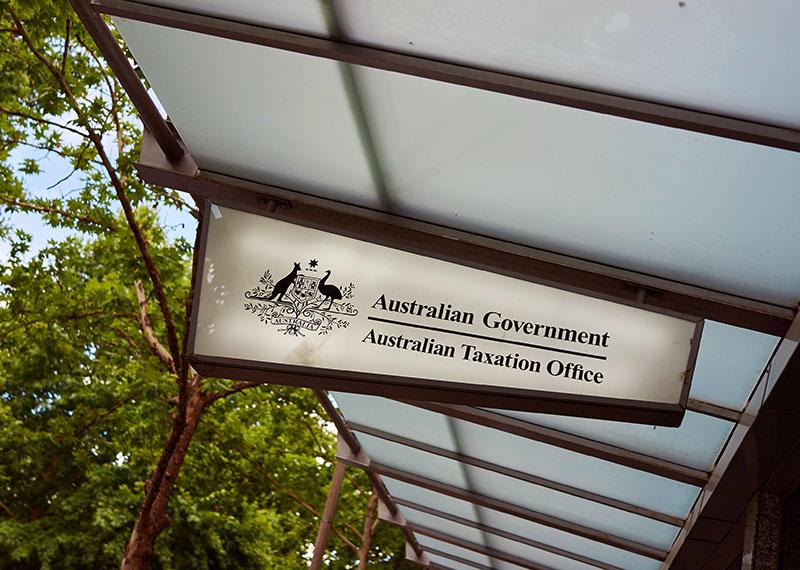Australia’s superannuation system is a heartfelt pillar of retirement planning, lovingly crafted to ensure every Australian can embrace a dignified life after their working years. Yet, a recent revelation from the Australian Taxation Office (ATO) has unveiled a tender concern: a $5.7 billion superannuation gap, touching the dreams of future retirees. This gap reflects unpaid contributions that employers have yet to weave into workers’ superannuation funds, gently impacting their long-term savings.

This moment calls us to unite in compassion, fostering solutions to protect every worker’s right to a secure and hopeful retirement, enveloped in care, dignity, and community support.
The superannuation system is supposed to provide workers with a secure financial foundation when they retire. However, due to systemic issues such as non-compliant employers, insolvent businesses, and inconsistent enforcement, millions of Australians could face reduced retirement savings. This article will explore the causes and consequences of the superannuation gap, the ATO’s efforts to recover unpaid super, and what steps both employers and employees can take to ensure super contributions are paid correctly.
ATO Uncovers $5.7 Billion Superannuation Gap
| Topic | Details |
|---|---|
| Superannuation Gap | The ATO has uncovered a $5.7 billion gap in unpaid superannuation contributions owed to workers. |
| Compliance Efforts | The ATO’s audits and investigations have led to the recovery of over $1.13 billion in unpaid super. |
| Payday Super | Employers will be required to pay superannuation at the same time as wages, starting July 1, 2026. |
| Employer Challenges | Small businesses and insolvent companies are major contributors to the unpaid super gap. |
| Employee Actions | Employees can monitor their super contributions and report unpaid super to the ATO. |
The $5.7 billion superannuation gap is a heartfelt challenge that gently touches the dreams of countless Australian workers, yearning for financial security in their cherished retirement years. Yet, with the Australian Taxation Office (ATO) weaving stronger compliance efforts and the upcoming payday super rule, a warm light of hope shines to mend this gap. We lovingly invite workers to stay vigilant, tenderly monitoring their superannuation and sharing any concerns with the ATO to nurture their future.
This moment unites us in fostering a compassionate community where every individual feels valued, empowered, and enveloped in care, dignity, and hope for a secure tomorrow.

What is Superannuation and Why Is It So Important?
Superannuation is the savings system that helps Australians prepare for retirement. The Superannuation Guarantee (SG) mandates that employers pay a percentage of an employee’s wages (currently 10.5%) into a superannuation fund. Over time, these contributions accumulate, earning interest and investment returns that provide a financial safety net for workers in retirement.
Without superannuation, many Australians would be left with limited savings in retirement and would have to rely on the government pension. The system is designed to ensure that everyone can retire with enough savings to live comfortably. However, when employers fail to meet their obligations, it places workers’ future financial security at risk.
The Growing Superannuation Gap
Despite the benefits, the superannuation system has a significant flaw — a $5.7 billion gap between what employers should be paying and what they actually contribute. This gap represents unpaid super contributions, which could be due to either employer negligence, non-compliance, or business insolvency.
The gap’s growth is particularly troubling as it directly impacts employees’ retirement savings. For example, if a worker’s super is unpaid for several years, the compound interest on those missed contributions is lost forever, further exacerbating their financial insecurity in retirement.
ATO’s Role in Recovery and Compliance
With a heartfelt commitment to justice, the Australian Taxation Office (ATO) is tenderly investigating unpaid superannuation, weaving hope for cherished workers by recovering funds vital to their retirement dreams. Through compassionate audits and investigations, the ATO has lovingly reclaimed over $1.13 billion, holding non-compliant employers accountable to ensure every worker’s super contributions are honored. This moment invites us to unite in nurturing a community where all feel valued, supported, and empowered, fostering a future of financial security, dignity, and care for all Australians.
Key ATO Actions
- Auditing Employers: The ATO has audited thousands of employers to ensure they comply with their superannuation obligations.
- Penalties and Interest: Employers who fail to meet their obligations face penalties and interest on the unpaid super.
- Employee Complaints: The ATO also receives employee complaints about unpaid super and investigates these claims to hold employers accountable.
However, the recovery efforts are not without challenges. A large portion of the unpaid super is owed by businesses that have gone bankrupt or are struggling financially. When companies become insolvent, employees may never see their missing super contributions, which further highlights the need for better compliance and enforcement.
Legislative Changes: Payday Super
Beginning July 1, 2026, a heartfelt legislative change will warmly take root, weaving greater security for Australian workers through the payday super rule. This compassionate policy invites employers to lovingly pay superannuation contributions alongside wages, aligning with each paycheck rather than waiting for the quarter or year’s end.
Designed with care, this change ensures contributions flow in real-time, gently reducing the risk of missed payments and uplifting workers’ retirement dreams. This moment calls us to unite in fostering a community where every individual feels cherished, secure, and supported with hope and dignity for a brighter future.
Why Payday Super Is Important
The introduction of payday super is expected to:
- Increase Compliance: Employers will no longer have the ability to delay super payments, ensuring employees’ funds are paid promptly.
- Improve Transparency: Workers will be able to see their superannuation contributions at the same time they receive their paychecks, making it easier to track.
- Better Retirement Savings: The sooner super contributions are made, the more time workers’ savings have to grow, leading to higher retirement savings overall.
Challenges Faced by Employers
While the system is designed to work smoothly, the $5.7 billion superannuation gap is largely due to small businesses and insolvent employers failing to meet their super obligations. In some cases, businesses may not have the funds to pay superannuation or may not fully understand their legal obligations.
Common Issues Contributing to the Gap:
- Financial Struggles: Small businesses may experience cash flow problems, leading them to delay or skip super contributions.
- Insolvency: Businesses that go bankrupt leave unpaid super contributions behind, often making it impossible for employees to recover the funds.
- Lack of Education: Employers, especially in smaller businesses, may be unaware of their legal obligations to pay superannuation contributions on time.
What Can Employees Do?
Employees need to take a proactive role in ensuring that their superannuation is paid correctly. Here are some steps that workers can take:
1. Regularly Check Superannuation Statements
Ensure that your super fund is receiving the correct contributions by checking your super statements regularly. Look for discrepancies and missing payments.
2. Use the ATO’s Online Services
The ATO provides online services for employees to track their superannuation payments in real-time. These tools help you ensure that your employer is paying the correct amount.
3. Report Unpaid Super
If you suspect that your employer is not paying your super contributions, report the issue to the ATO. The ATO has a dedicated team to investigate unpaid super and hold non-compliant employers accountable.
4. Seek Professional Advice
If you’re unsure whether your super is being paid correctly, consult with a financial advisor or your super fund for assistance.
Case Study: How Unpaid Super Can Affect Your Retirement
Let’s consider the case of Sarah, a 40-year-old worker in a small business. Over the past three years, her employer failed to pay superannuation contributions, totaling $5,000 in missed payments. If Sarah had received that $5,000, invested it in a low-risk super fund, and let it grow with compounded interest, she could have had an additional $10,000 by the time she turns 65. Missing out on super contributions for just a few years can have long-term financial consequences, emphasizing the need for accurate tracking and enforcement.
What’s at Stake for Future Retirees?
The $5.7 billion superannuation gap poses a real threat to future retirees who rely on these funds to ensure financial independence in retirement. If non-compliance continues unchecked, it could lead to a generation of retirees with insufficient savings, increasing reliance on government pensions and reducing financial security.
The introduction of payday super and better compliance measures from the ATO are promising steps forward. However, workers must remain vigilant, regularly check their super accounts, and report any discrepancies. By doing so, we can ensure that superannuation serves its intended purpose of securing a comfortable retirement for all Australians.
FAQs
Q1: How can I check if my employer is paying my superannuation?
A1: You can check your superannuation statements regularly or use the ATO’s online services to track your contributions in real-time.
Q2: What should I do if I think my employer is not paying my super?
A2: Report the issue to the ATO. They will investigate your complaint and take necessary actions to ensure your super contributions are paid.
Q3: How will payday super help with the superannuation gap?
A3: Payday super will require employers to pay super contributions at the same time they pay wages, ensuring more timely payments and reducing the risk of missed contributions.





